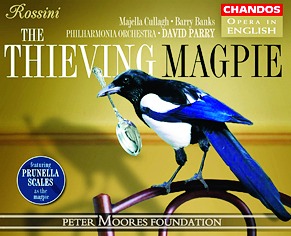
MAY WE BORROW YOUR LANGUAGE? By Philip Gooden, Head of Zeus, Rs 799
A word is like a conch shell: put your ear to it and hear the wind rushing inside, carrying news from the shores where it originated, passed through and found home. This may make the work of a lexicographer sound romantic. In many ways it is so. But trust the great compiler of the English dictionary, Samuel Johnson, to provide a different perspective. In his inimitable curmudgeonly style, he defines a lexicographer as a "harmless drudge, that busies himself in tracing the original, and detailing the signification of words".
Philip Gooden is one of the latest in that hallowed line of harmless drudges. He puts together a delightful list of words to serve as an example of "How English has stolen, purloined, snaffled, pilfered, appropriated and looted words from all four corners of the world". The word, "stolen", and its synonyms in this subtitle have all been picked up from different languages. The cover has a colourful little parrot staring knowledgeably at the reader. Given English's penchant for sticking words from everywhere in its nest, a thieving magpie may have been a better choice as the poster bird.
Every living language is enriched by cross-pollination from other languages. A legacy of the Empire, linguistic miscegenation has been especially high in case of English. Gooden arranges the borrowings in chronological order so that we first encounter the Celtic words, then the Anglo-Saxon, the Norman, and then terms from nearly all parts of the world. The result is thrilling: May We Borrow Your Language? reads like a guidebook to an open republic of letters that allows "no sniffer dogs, no border checks... nothing at all which will be effective in keeping out the intruders". The book is especially recommended for Brexiteers.
However, the process that made English a mixed bag not only involved migration and assimilation but also wars. Indeed, it begins with battles as the Angles, Saxons and other invader-settlers from northern Europe start arriving in Britain from the fifth century AD onwards. Coming centuries later, the two World Wars kept up the steady supply of new words. One of my favourites in this regard is "doolally" (1925). This term goes back to the days of the British raj when soldiers waited restively in the army camp of Deolali in Maharashtra for the ship to take them home. Gooden notes: "... Deolali was not only a boring place to wait... but also an unhealthy spot. Malarial fever, called tap from a Persian word, was rife. Men who became unbalanced as a result of the fever were said to be 'doolally tap' or just plain doolally and the word became a synonym for odd, peculiar, mad."
Gooden's footnotes should not be missed, for they are often as interesting as the main text. The footnote to the word, "Murphy" (1811), struck home. Here Gooden talks about John Bangsund's witty linguistic coinage of 'Murphy's Law' to describe how, "if you set out as an editor to highlight someone else's written errors, you will inevitably make ones of your own".
However, the entry I liked the most is "mondegreen", which is one of the youngest entrants in English, arriving as recently as in 1954. It denotes a word and phrase arising from mishearing and misunderstanding. It is easy to mishear words when they are set to music. The commonest example of mondegreen is the "creative rendering" of the hymn line, "Gladly, the cross I'd bear" as "Gladly, the Cross-eyed Bear". When non-English speakers hear English songs, they are more likely to create mondegreens. However, they do not always crop up because of unfamiliarity with the language concerned, as this example from the inspirational Bengali song, "Hao dharamete dheer" ("Be firm in your faith"), would show.
Two lines in the song - "Bhuli bhedabhed gyaan, hao sabe aaguaan/ Sathe achhe bhagabaan-habe jai" ("Forgetting all differences, march forward/ God is with us-victory is assured") - are often misheard in the heat of the staccato beat. The word, "sathe" in "Sathe aache bhagabaan" frequently turns into "chhade" ("on the roof"), especially for dozy children who are plucked from bed early in the morning to be placed in the school assembly line for the mandatory prayer. To imagine god as waiting for you on the roof is to give him a local habitation, which would have a particular resonance for Bengalis of the pre-globalized years, for whom the chhad was often the centre of childhood activities. This mondegreen conjures an image of god as a rather generous playmate, who, unlike most playmates, always ensures that you win.
The space of language is the only one left that still allows of magic such as this. Nothing is impossible in this realm. Incidentally, "thing" features here as one of the most adaptable words. It can denote, well, anything, from assembly, in its original sense, to a beast, to a man. Shakespeare's Prospero, the master of words, recognizes the shifting boundaries between the last two categories when he says of Caliban: "This thing of darkness I acknowledge mine."











